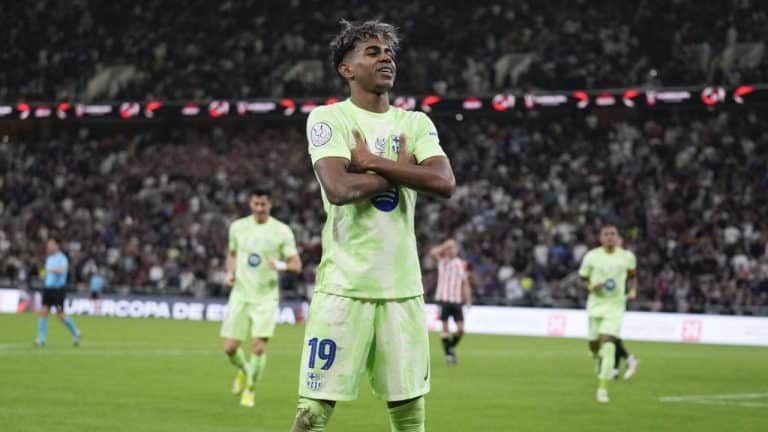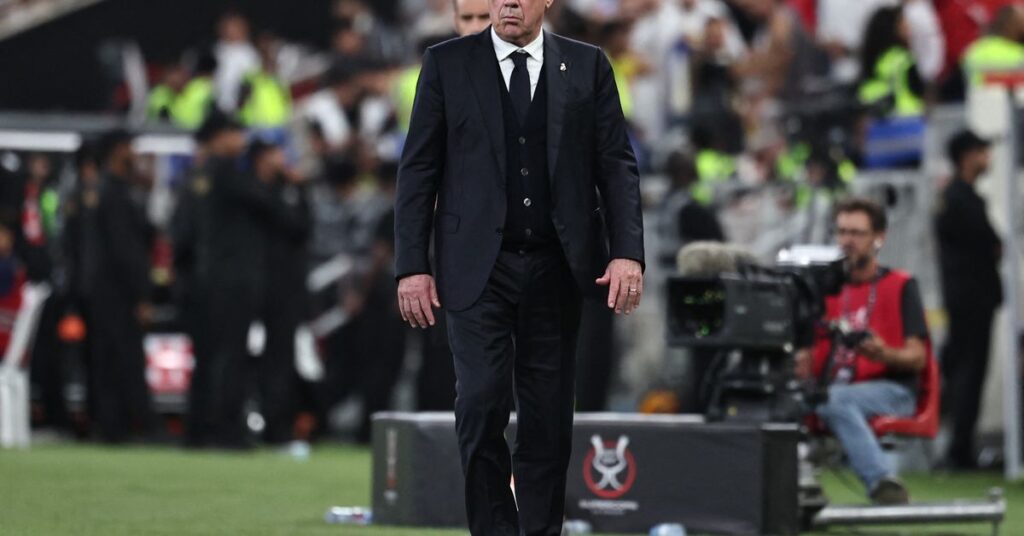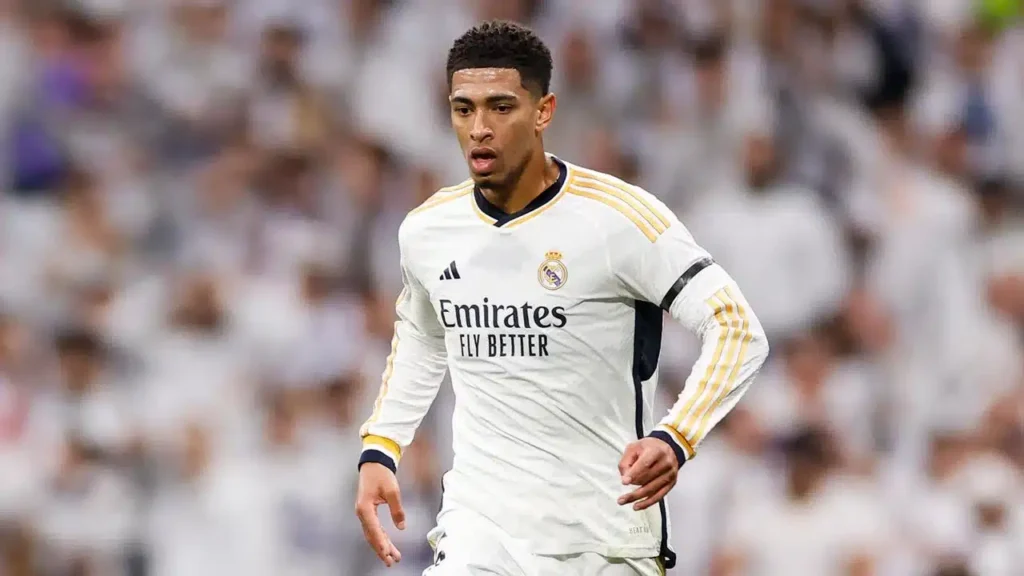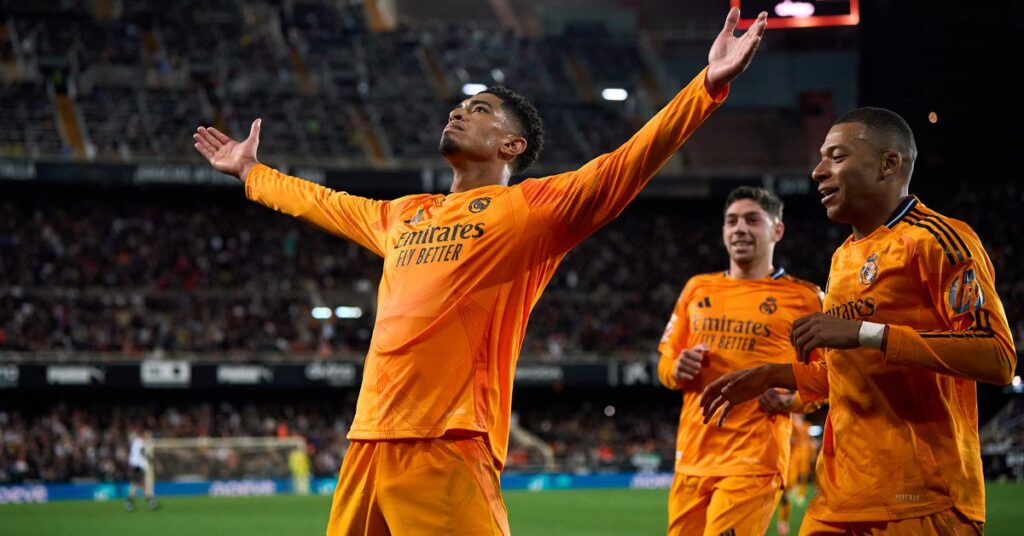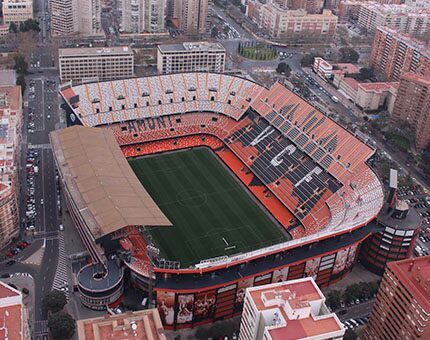Scattered Notes – A new segment where I place my notepad on an article after each game. Uncomplicated, unfiltered, unprofessional.
Disorder
That was ugly.
From tactical setup to execution, Real Madrid were outplayed in every phase of the match. Already in the 56th minute, Carlo Ancelotti’s men were down 5 – 1 and one more man thanks to Wojciech Szczęsny’s red card. The red card did not prompt the comeback. The team seemed as lost, with one man up, as when the playing field was “even.”
All Szczęsny’s red card did was give Real Madrid some relief, as Barcelona went into a deeper block and ceased their attacks. What the red card essentially did was prevent a double-digit blowout. Until that moment, as in the previous Clásico in October, it seemed that Hansi Flick’s men were going to score every time they had the ball.
While individual mistakes on the field were evident, the deeper problems arise from systemic failures that have been brewing for some time.
Right side roulette
It is completely unsustainable for Lucas Vázquez to continue as a right back until the end of the season. There have been enough warning signs for a while now. Rayo Vallecano (Nteka), Atalanta (Lookman), Pachuca (Idrissi), Barcelona (Raphina), etc., all opponents rightly point to Vázquez as a defensive problem that must be exploited.
The club cannot afford to wait until May or June to address the Vázquez black hole. The season is already at stake.
Ideally, that means signing a suitable right-back in January. If that doesn’t happen (and history suggests it won’t), the most realistic (although far from ideal) solution would be to move Fede Valverde to right back. That in itself manifests a new problem: Valverde is already overloaded with minutes.
The real ideal solution (preparing someone like Jesús Fortea or Lorenzo Aguado) should have emerged months ago. While it’s true that they may not have been ready to start a Clasico tonight, the reason is that they didn’t get enough reps in August, September, October, November and December.
The only reason we knew Raúl Asencio was ready to play in a Clasico tonight was because he was forced to act earlier. If Eder Militao had torn his ACL last week, would we have known Asencio’s ability by now? That’s a rhetorical question.
How many emergencies are needed for the coaching staff to start integrating young talents like Fortea or Lorenzo? This lack of planning has left the team struggling, as the opposing team constantly exposes Lucas Vázquez on that wing, while Aurelien Tchouameni has struggled defensively alongside him.
Lost tactically
Behind the confusion of the double pivot of Fede Valverde and Eduardo Camavinga, Barcelona’s midfielders could roam freely, without tracking, to receive the ball in dangerous areas. Once the midfield was broken, chaos ensued: Lamine Yamal and Raphinha came flying in and the defense was in constant struggle.
Real Madrid’s pressure match against Barcelona was ill-advised and poorly executed. Barça harassed the press all night and Madrid fell into the trap, leaving their defensive structure in ruins. Ancelotti has been here long enough to know what to expect from this Barcelona team: superior positional play and the ability to exploit gaps ruthlessly.
It is easy to blame Lucas Vázquez, Aurélien Tchouaméni or the midfield for their individual mistakes. But Ancelotti must take responsibility for failing to put the team in a position to succeed. Knowing your defensive responsibilities in advance, how do you mask them? Hansi Flick, for example, defends high up the pitch to minimize the exposure of his backline; or slows down play with sustained possession while encouraging a naïve Real Madrid to press, in turn creating their own transition opportunities. Ancelotti, on the other hand, seemed (seems!) to have no clear plan.
The entire attack strategy seemed to depend on individual brilliance, even generational brilliance. The task given to Real Madrid’s attackers tonight was unreasonable: to initiate isolated, low-probability transition attacks, with little or no support. Barcelona’s transition defense is too good not to shut down these predictable attacks.
empty words
Ancelotti’s post-match press conference offered few meaningful solutions. “The plan was to play,” he said.
What does that mean? What is happening in training to prepare the team for Barcelona’s positional superiority? How is it that this team is not as prepared to close defensive channels, track third-party runs or contest 50/50 balls? There is a reason why every loose ball fell to a Barcelona player. One team was in a position to counterattack, find the open man and attack loose balls. The other team seemed shaken, playing in quicksand, struggling to find an exit pass.
This was not the first Clásico against this Barcelona team. The same problems appeared in the October bloodbath. The team tonight fluctuated through two defensive states: 1) Sitting deep without defending compactly, giving Barça too much respect for the ball and never being in a position to win duels or escape the press; and 2) Being misled by an inefficient press.
Mbappe
The only bright spot in this disaster was Kylian Mbappé. He seemed like the best version of himself: proactive, efficient, and relentless in breaking lines. But not even Mbappé’s heroics could mask the team’s biggest problems. Their efforts lacked support, and relying on their counter-attacking brilliance will not be enough when the team is being suffocated in every other aspect of the game.
What’s next?
It is sometimes difficult to walk away at such low points during the season, but the team is still in play for three major titles. Losses in the Classic, even the worst ones, are not indicative of where the team will be at the end of the season.
But Real Madrid’s problems go beyond the Clásico. While Barcelona have exploited Ancelotti’s plan more ruthlessly than anyone, many teams have devastated Real Madrid, and tonight’s performance was a huge regression.

 Workout
Workout
 Meditation
Meditation





 Contact Us
Contact Us



